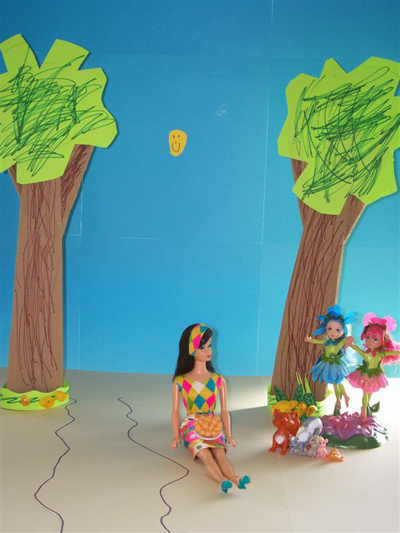Karen James, January 3, 2017
(Ethan was 14 in that story)
Last night, I went downstairs where Ethan has his computer room set up. I asked if I could try the new VR set we got for him over the holidays. He set it up for me. He turned off all the lights, moved the cord out of my path, put the headset over my eyes, put the paddles on the floor behind me and said, "There you go. Now find the paddles. They're behind you." Then he went upstairs to make himself a burrito.
Frozen in place, I called out, "Don't leave me! I don't know what to do!" but he was already gone. I'm sure he heard me, but he knew I was safe and trusted I would discover what to do. I soon did. I slowly turned around, surveying my new environment. I looked down, and there were the paddles in my view! I picked them up. Now what? I started clicking and pulling and jabbing air. I began walking carefully around. I found the walls. I found out how to move beyond them. I discovered how to open new programs—new worlds and new things to explore.
Ethan returned with his burrito, and ate it far enough to not interfere with my play, but close enough to be able to watch and listen to me. I could hear him. I told him how excited I was. I played for a good long time. I tossed a stick to a robot dog in a meadow in Iceland. I caught planets in their orbits around the sun, looked at them, then tossed them into the surrounding stars. It was magical.
A good part of the magic was in what I learned along the way and the confidence that grew from each new discovery. The fact that Ethan left that magic intact by not telling me everything ahead of time struck me as thoughtful, insightful and trusting. I felt it was significant how certain Ethan seems that a person will learn what they need to know when they're safe, supported and believed in. His understanding of and respect for the personal nature of that learning moved me too. This is an interesting journey.
SandraDodd.com/learning
photo by Karen James
I couldn't show anything like what Karen saw, but this might be the dark room.



















